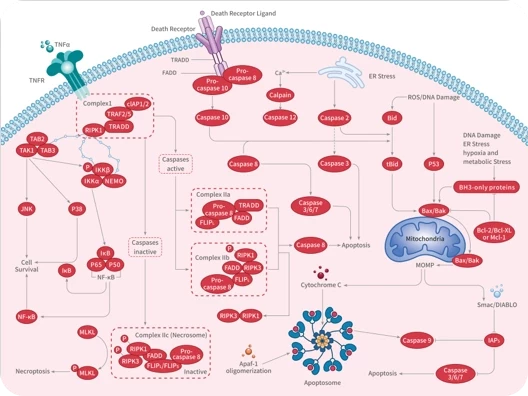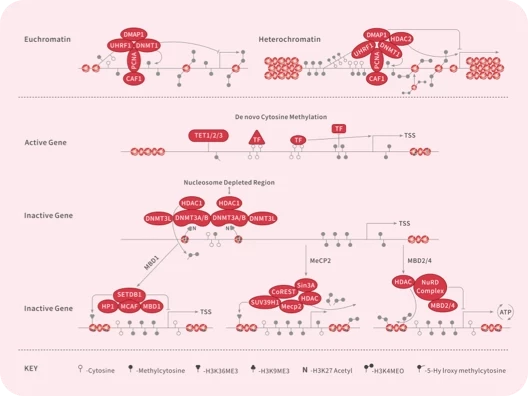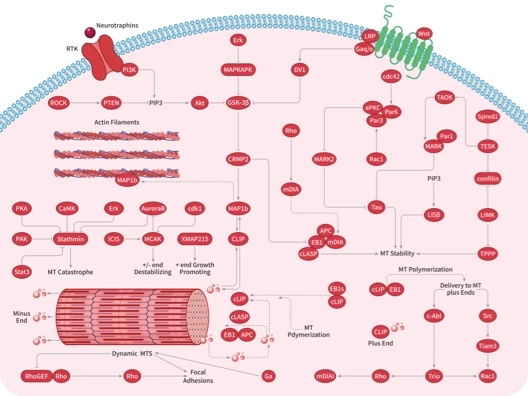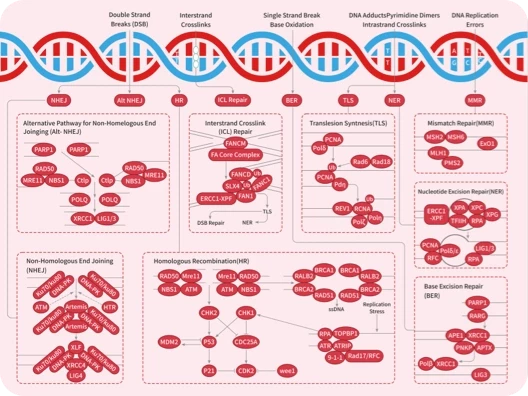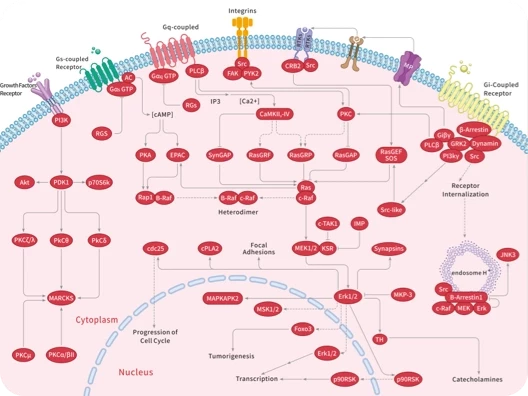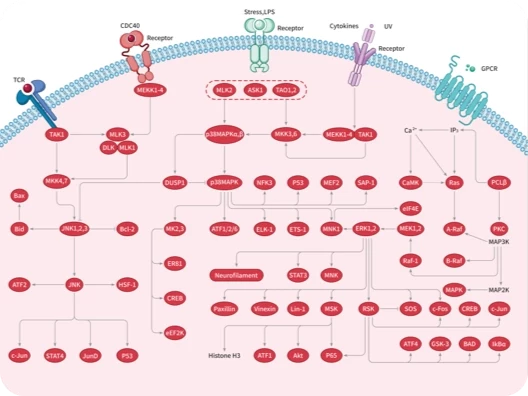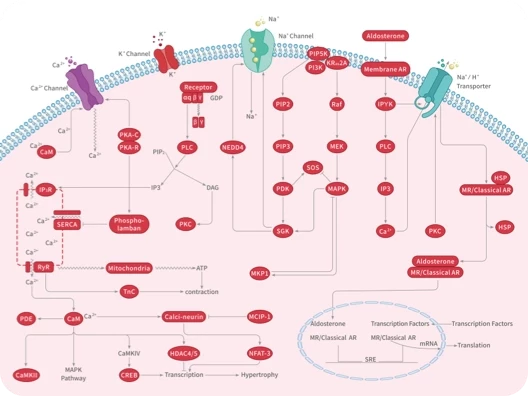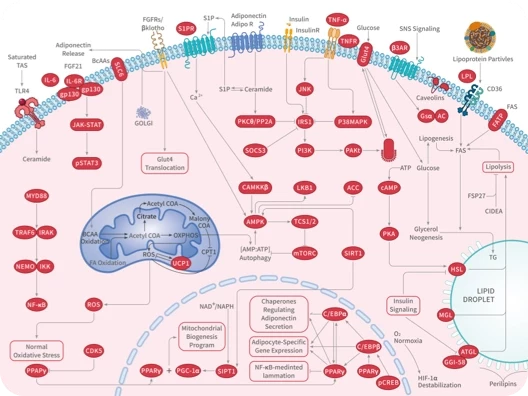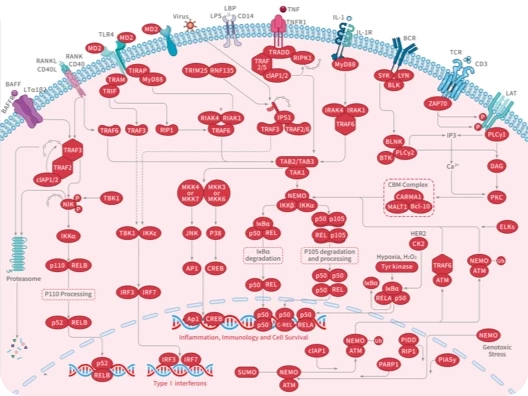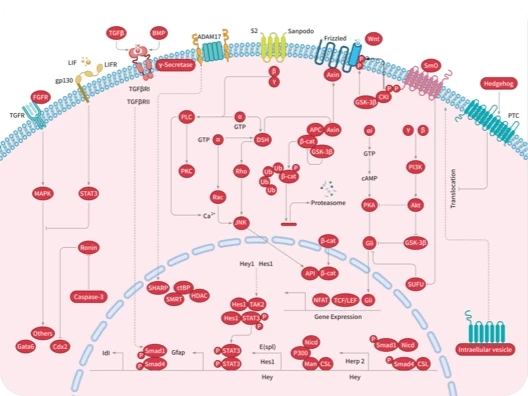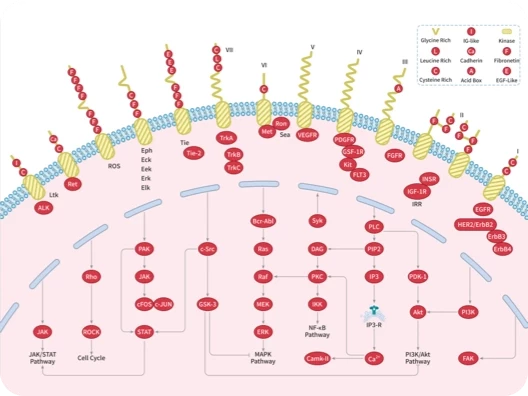- 全部删除
 您的购物车当前为空
您的购物车当前为空
购物车
SP-D Protein, Mouse, Recombinant (His)
产品编号 TMPY-01110
Surfactant protein D/SFTPD Protein, Mouse, Recombinant (His) is expressed in HEK293 mammalian cells with His tag. The predicted molecular weight is 37.2 kDa and the accession number is P50404.

SP-D Protein, Mouse, Recombinant (His)
产品编号 TMPY-01110
Surfactant protein D/SFTPD Protein, Mouse, Recombinant (His) is expressed in HEK293 mammalian cells with His tag. The predicted molecular weight is 37.2 kDa and the accession number is P50404.
| 规格 | 价格 | 库存 | 数量 |
|---|---|---|---|
| 100 μg | ¥ 3,820 | 5日内发货 |
大包装 & 定制
加入购物车
TargetMol 的所有产品仅用作科学研究或药证申报,不能被用于人体,我们不向个人提供产品和服务。请您遵守承诺用途,不得违反法律法规规定用于任何其他用途。
资源下载
产品信息
| 生物活性 | Activity testing is in progress. It is theoretically active, but we cannot guarantee it. If you require protein activity, we recommend choosing the eukaryotic expression version first. |
| 产品描述 | Surfactant protein D/SFTPD Protein, Mouse, Recombinant (His) is expressed in HEK293 mammalian cells with His tag. The predicted molecular weight is 37.2 kDa and the accession number is P50404. |
| 种属 | Mouse |
| 表达系统 | HEK293 Cells |
| 标签 | C-His |
| 蛋白编号 | P50404 |
| 别名 | surfactant protein D,SP-D,Sftp4,AI573415 |
| 蛋白构建 | A DNA sequence encoding the mouse SFTPD (NP_033186.1) precursor (Met 1-Phe 374) was expressed with a C-terminal polyhistidine tag. Predicted N terminal: Ala 20 |
| 蛋白纯度 | ≥ 90 % as determined by SDS-PAGE |
| 分子量 | 37.2 kDa (predicted); 45 kDa (reducing condition, due to glycosylation) |
| 内毒素 | < 1.0 EU/μg of the protein as determined by the LAL method. |
| 缓冲液 | Lyophilized from a solution filtered through a 0.22 μm filter, containing PBS, pH 7.4. Typically, a mixture containing 5% to 8% trehalose, mannitol, and 0.01% Tween 80 is incorporated as a protective agent before lyophilization. |
| 复溶方法 | A Certificate of Analysis (CoA) containing reconstitution instructions is included with the products. Please refer to the CoA for detailed information. |
| 存储 | It is recommended to store recombinant proteins at -20°C to -80°C for future use. Lyophilized powders can be stably stored for over 12 months, while liquid products can be stored for 6-12 months at -80°C. For reconstituted protein solutions, the solution can be stored at -20°C to -80°C for at least 3 months. Please avoid multiple freeze-thaw cycles and store products in aliquots. |
| 运输方式 | In general, Lyophilized powders are shipping with blue ice. |
| 研究背景 | Surfactant pulmonary-associated protein D, also known as SFTPD and SP-D, is a member of the collectin family of C-type lectins that is synthesized in many tissues including respiratory epithelial cells in the lung, and contains one C-type lectin domain and one collagen-like domain. The polymorphic variation in the N-terminal domain of the SP-D molecule influences oligomerization, function, and the concentration of the molecule in serum. SFTPD is produced primarily by alveolar type II cells and nonciliated bronchiolar cells in the lung and is constitutively secreted into the alveoli where it influences surfactant homeostasis, effector cell functions, and host defense. It is upregulated in a variety of inflammatory and infectious conditions including Pneumocystis pneumonia and asthma. SFTPD is humoral molecules of the innate immune system, and is considered a functional candidate in chronic periodontitis. Besides, it is involved in the development of acute and chronic inflammation of the lung. Several human lung diseases are characterized by decreased levels of bronchoalveolar SFTPD. Thus, recombinant SFTPD has been proposed as a therapeutical option for cystic fibrosis, neonatal lung disease and smoking-induced emphysema. Furthermore, SFTPD serum levels can be used as disease activity markers for interstitial lung diseases. |
计算器
SCI 文献
技术支持
请阅读 重组蛋白用户指南 了解更多具体信息.


















